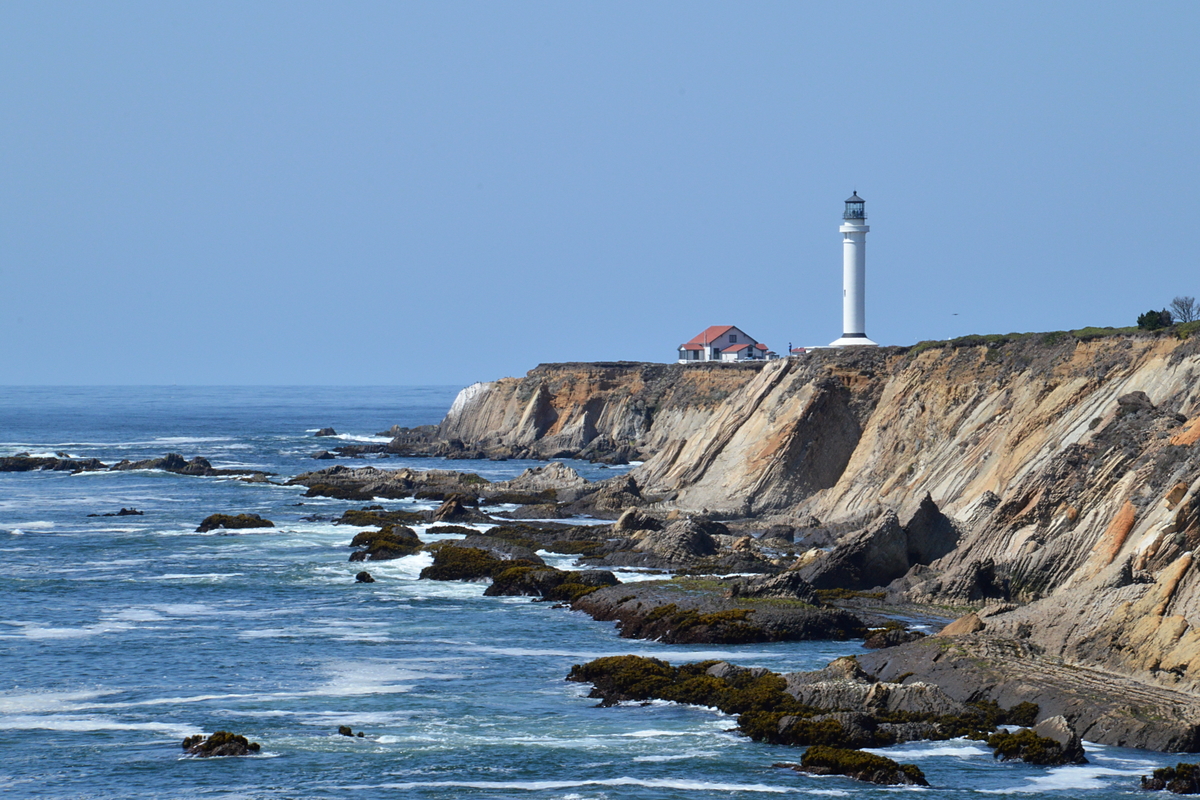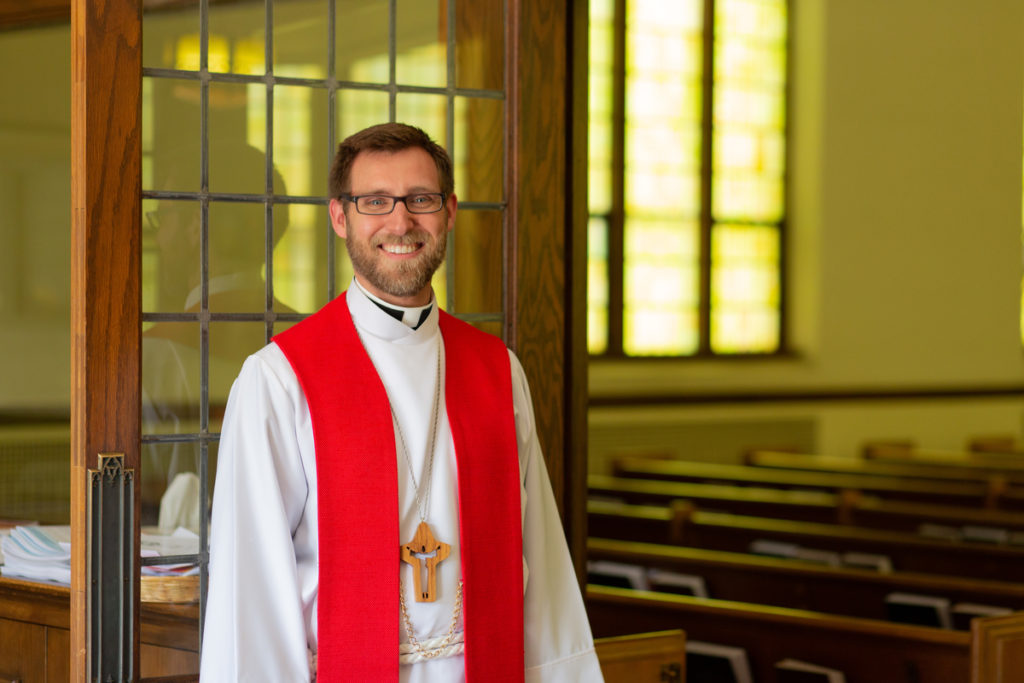Editor’s Note: Pr. Haug wrote a positive article on this topic in January (click here).
Last newsletter I hinted that I would write a follow up article about Operation
Reconquista and offer some critical thoughts about the movement. However, after
publication, I was introduced to two leaders in the movement; Richard Ackerman (AKA
Redeemed Zoomer), the official leader of Operation Reconquista, and Benjamin Ruff,
leader of the Society of Lutheran Advocates (SOLA). SOLA is the Lutheran
Component of Operation Reconquista. Rather than simply offer critique, I offered these
two gentlemen a chance to respond to my critical questions. What follows is their
responses in an interview format which allows CORE readers to hear from them directly.
1. I hope you saw the article that I wrote for Lutheran Core. Did I accurately capture what Operation Reconquista is trying to accomplish as well as accurately convey your beliefs?
RA: Yes, you did accurately represent us. Here are a few things I would add: Firstly, Reconquista is part of a broader ideology that Christians have made the mistake of retreating from the culture and the world in the past 100 years, which has caused the culture to become more secular, which has caused more Christians to retreat, and so the cycle repeats. Reconquista is the belief that, when secularists hijack a Christian church or institution, faithful Christians should retake it rather than running away from it.
Secondly, the abandonment of mainline churches and the rise of Evangelical and non-denominational churches has caused Protestantism to lose its traditional and institutional rootedness, which is something the Reconquista hopes to fix.
BR: I was very pleased to read your article. It was an incredibly brief and accurate representation of our goals. Affirmative responses were in short supply, so we were delighted to receive one from such a trusted source.
2a. For those who know history, the word Reconquista can conjure up images of violent response and take over. Obviously, you are neither advocating for nor implementing such things; however, knowing that there are those who say, “Words are violent,” and that they might use that against the name of the movement: did you consider other names? How do you respond to those who might try to tie this to a violent takeover?
RA: I was the one who thought of the name Reconquista. Yes, it is a militaristic language. The Bible uses militaristic language. But the Bible is VERY careful to clarify “For our struggle is not against flesh and blood, but against the rulers, against the authorities, against the powers of this dark world and against the spiritual forces of evil in the heavenly realms.” – Ephesians 6:12. Likewise, we are very clear to clarify that we are fighting Satan, and the heresies that he has spread in the church, not against churches and not against leaders in the church. We believe that in order to inspire young men to make sacrifices and take up a difficult cause, it is psychologically necessary to use strong militaristic language. We believe the failure of past conservative renewal movements in the mainline can be partially attributed to their timid and compromising nature. The progressives have never been timid in the slightest and have been rewarded for it with astounding conquest.
BR: I was not involved in the naming process of Operation Reconquista, but I was involved in the naming process of SOLA, and militaristic language just didn’t strike us as the best way to describe ourselves. As far as those who try to associate us with violence, our usual response is twofold; Firstly, the Bible and theologians have never shied away from using militaristic metaphors to describe the life of faith, and secondly, we’ve never advocated for any sort of violence. We have only encouraged perseverance and catechism. We do what we can to ensure that when our members engage in debate, they conduct themselves in a Graceful and Christlike manner.
2b. For many people in mainline denominations the word Reconquista will conjure up images of the Conquistadores – not the people who reconquered Europe from the Ottoman Empire but the European powers that came to and conquered America and enslaved and mistreated indigenous peoples. How will you deal with the blowback you will receive from those who will dismiss you as just white, misogynistic, privileged, oppressive, western, Euro-centric males?
RA: This one is easy. In all global conflicts between liberals and conservatives in a denomination, the white countries have churches that are trying to push the church in a liberal, LGBTQ affirming direction, and the global countries have churches trying to resist it. Two enormous examples of this are: 1) the African Anglican churches recently hosted a meeting of conservative Anglicans from all over the world in Kigali, Rwanda, to condemn the Church of England’s affirmation of same-sex blessings. 2) the United Methodist Church would have voted for gay marriage in 2019 if it weren’t for all the African congregations voting against it. Generally, theological liberalism emerges from privileged white cultures. Even within American mainline denominations, minority congregations are almost universally more theologically conservative on average.
BR: Here at SOLA, some of our current goals include establishing a women’s group, either just for SOLA or potentially for the entire Reconquista, as well as contacting and including ethnic church voices in the movement. If we ever have the resources to do so, we would be delighted to publish theological resources in other languages. It is a fact that young white males do make up the majority of our membership, but the white-ness of our movement is only a reflection of the ELCA’s demographics, the youthfulness of the movement is because many of the ELCA’s older orthodox members have already jumped ship(Or joined organizations such as LCORE), and the male-ness of our movement is a result of it being spread on the internet, where women are typically less active.
3a. I noted that among things that Operation Reconquista sought to preserve in the mainline was cultural power and relevancy. How would you respond to those who believe that mainline denominations are no longer relevant and actually have little to no cultural power?
RA: The mainline has POTENTIAL to have cultural relevance, but that potential is not actualized due to the mainline refusing to hold to its historic beliefs. The Catholic Church has strong cultural influence these days because they are institutionally rooted and theologically conservative. Evangelicals are theologically conservative, but not institutionally rooted, so they don’t have much influence. However, if the mainline, which is institutionally rooted, becomes more theologically conservative, it will gain back its cultural influence.
BR: The reason the Mainline doesn’t appear culturally relevant is because it hasn’t been utilizing that cultural relevancy in any meaningful way. If Mainline churches began preaching things apart from modern culture and properly teaching orthodox faith, the changes it would be able to make would be truly profound. It’s also important to note that a more orthodox mainline wouldn’t just be utilizing its own cultural power, it would also be amplifying the cultural power of Christianity as a whole by presenting more visible unity in Christian thought.
3b. I personally believe the Church should not be interested in obtaining cultural power but should strive to be invitational and not impositional. The times the church has taken cultural power have not generally ended well. What are your thoughts regarding this?
RA: “Cultural power” does not necessarily mean a marriage between church and state. It simply means the church can have a moral influence on the outside world. Liberals in the denomination already believe this. They believe the church’s job is to speak out against injustice. About this they are correct, they are just doing it on secular terms instead of Biblical terms.
BR: I think these concerns are valid but slightly premature. At this moment, Operation Reconquista’s mission is restricted exclusively to the church and its congregants. I pray that when the day comes that our mission has the opportunity to expand our sights to other institutions, a wise decision will be made, and whatever we do will be pursued in a Christ-like manner.
4. Is the mainline truly worth saving? What if the death of mainline denominations is a removing of the branches of the vine that do not bear fruit (John 15)?
RA: It is hard for Americans to understand this, but institutions matter. Generational resources matter. Traditions matter. The mainline contains generations and generations of donations from faithful Christians, only to be hijacked by those who do not hold to the values that such people donated to. Mainline churches have decades and centuries of history and heritage quite literally carved into their walls. They have old cemeteries. They are living testimonies to the beautiful things Christians built for the glory of God. Their choirs and liturgies are still relics of what they created back when they were more faithful.
BR: I would argue that the ELCA still bears fruit. Not Theological fruits, but the ELCA’s commitment to charity and community under the motto “God’s work our hands” is (to my knowledge) unparalleled among Lutherans, in addition to the fact that the ELCA has been able to provide sacraments more regularly than a lot of other Lutheran churches, and even if many parts of the ELCA are barren in God’s eyes, we hope that by building up the orthodox congregations within it, some twigs and leaves will remain.
5. A more practical question: the secular progressives indeed played a very long game to seize power in mainline denominations, and they were very successful. There are numerous accounts (Dennis Nelson has chronicled several in the CORE newsletter) of them pushing out orthodox believers and seizing control of congregations to ensure their agenda continues. Are you prepared for the blowback that you will inevitably receive?
RA: Yes there will be persecution. Jesus said we would face it. However, persecution only makes the church stronger. Christians were persecuted in the Roman Empire but ended up taking it over. The way of Jesus is the way of suffering and rejection, but in the end, the church will be triumphant because God is on our side.
BR: Only time will tell if we are strong enough or lucky enough to weather the backlash from the ELCA’s leadership and members, but I can say that all the members of SOLA are incredibly passionate and committed people who are aware of these threats, and willing to face them as they come, though that’s not to say we’re going to paint targets on ourselves or our churches without needing to.



















